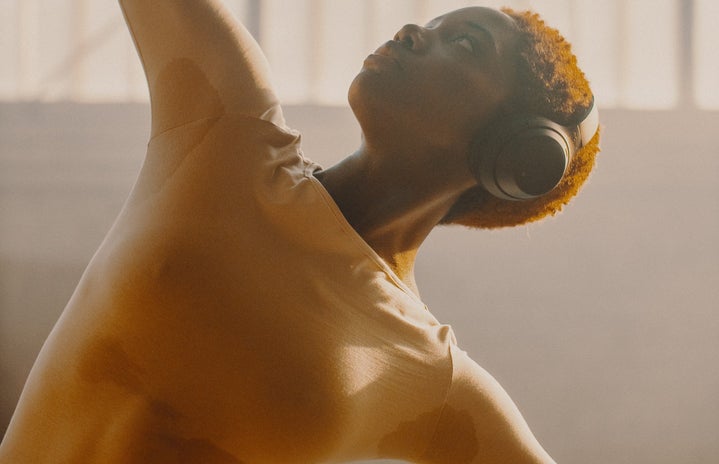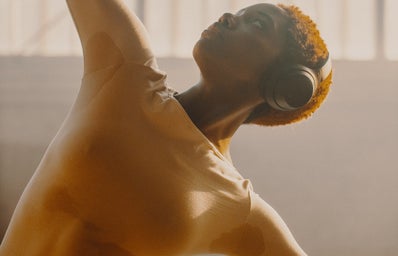I always pictured accomplishing my dreams would be my Elle Woods moment. You know the one right after she won the case and rejected Warner? She did it. She was confident, and she could do anything. She is a powerful, unstoppable woman, and she looked so freaking happy. I wanted my Elle Woods moment. I wanted to achieve my dreams, and I figured I would need to work hard before I got there. After all, Elle had to study extremely hard for her LSAT and to keep up in her classes. So, following her lead, I was ready to dive into the “rise and grind” mentality of hustle culture.
The idea of hustle culture sounded appealing to me. Someone who overextends themselves by working longer hours and pushing themselves to the limit to achieve their goals – I would love to be one of those girls. I admired those people who threw themselves into their work and didn’t let anything get in the way of their dreams. I have always been a hard worker and done well in school, but I have my faults. I procrastinate, I’m a perfectionist, which makes it hard to complete tasks promptly, and I’m more of a dreamer than a doer. So, hearing about this new trend of being a hustler sounded like the perfect way to become a doer. I would finally be working towards my goals instead of only dreaming about them. I was confident that being a part of this hustle culture would turn me into a doer so I could bask in my Elle Woods moment.
As I learned more about the hustle culture, the more I saw its harmful presence everywhere. I realized that constantly working, as hustle culture promotes, leads to harmful mental and physical effects. When we’re thinking non-stop about our work and what we must do to succeed, we have zero time to relax. This non-stop stress also means our bodies are rapidly producing stress hormones, and we never have the chance to recover. This can cause high blood pressure, weakened immune systems, muscle and bone breakdown, and many other harmful effects on our bodies (Brady, 2020 para. 10). “The belief that we are what we do, that we have to earn our place, that we’re only worthy of what we can produce sets us on a roller coaster of self-esteem highs and lows.” Says Krissy Brady, in her article, “The Downside of Hustle Culture.” (Brady, 2020 para. 11). Since our worth is placed into what we can accomplish, our self-esteem can take a nosedive along with our mental and physical health. If we aren’t making progress or aren’t reaching our own impossible standards, it can lead to negative self-talk and feelings of worthlessness.
So, with all these harmful side effects, why do we still feel the need to participate in the hustle culture? Culture critic Anne Helen Petersen explains what she believes is the answer to this question. She says, “Millennials are just desperately striving to meet their own high expectations. An entire generation was raised to expect that good grades and extracurricular overachievement would reward them with fulfilling jobs that feed their passions. Instead, they wind-up with precarious, meaningless work, and a mountain of student loan debt. And so, posing as a rise-and-grinder, lusty for Monday mornings, starts to make sense as a defense mechanism.” (Griffith, 2019 para. 25). Yikes! That’s a hard pill to swallow, but she is definitely right. We were raised to be overachievers and look where it’s gotten us.
On top of that, this message of if you work hard enough, you’ll achieve your dreams, and then you’ll be successful, is everywhere; in Disney movies, and startup sensations like Steve Jobs, Oprah Winfrey, Walt Disney, and J.K. Rowling. We see all these Disney princesses who we’ve always looked up to achieving these huge feats. Moana saved her whole village with her determination to return the heart of Te Fiti. Mulan saved China with her hard work and refusal to give up. They sent us a clear message that if we work hard enough, we can be successful too.
I think the problem arises because accomplishing our dreams and being successful has somehow become synonymous with being happy. Of course, achieving your dreams is cause for celebration, but it seems like we took this message to the extreme, twisting it to mean you can only be happy if you work hard enough and push yourself to the limit. So, if we must work hard to be happy, we couldn’t possibly be happy now, so why not hustle and overwork and be sleep deprived because eventually, we’ll be happy right? When I first imagined myself partaking in hustle culture, it wasn’t the work that sounded appealing, it was the happiness that followed. That glowing, Elle Woods, winning feeling was what I wanted. I didn’t want the health issues and constant stress. So, my solution was to ditch the hustle culture! I’d always been a hard worker, but I also needed to remember the importance of taking care of myself and enjoying the moment. Of course, hard work is important, and it’s a key ingredient to success. But taking care of our mental and physical health comes first! So, take time to relax and give your body and mind the rest they deserve. You’ll get to your Elle Woods success phase eventually, but when you get there, you’ll need a healthy mind and body so you can fully enjoy your moment!


